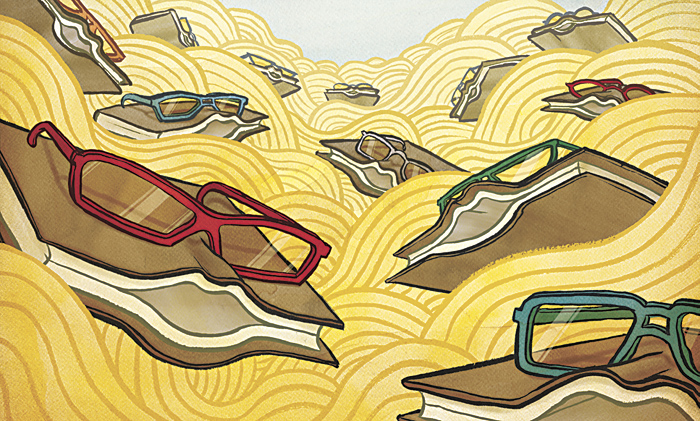“When was the last time you bought a book of poetry?” Amber Flame asks over drinks at Spitfire. It’s a rhetorical question, but I find myself struggling to come up with an answer. I don’t want to admit it was in high school. And that it was Sylvia Plath’s Ariel.
“More specifically, when was the last time you bought a book of poetry by someone relatively unknown?” Flame presses, as if reading my mind. I’m glad I didn’t mention Plath, who’s been dead for 45 years.
“Nobody is buying poetry anymore,” Flame concludes. “They would rather listen to it on a CD. Or they go to open-mike nights and slams. Spoken word relays poetry in a way that the page can’t. It’s the new medium for poetry.”
That’s a pretty bold statement, but her fellow poets who’ve joined us nod in assent at the bar. None cite publishing industry sales figures—perhaps because there’s no New York Times poetry bestseller list. Rather, there’s the anecdotal sense that poetry in its printed form has become something you study in college then forget, something that turns up occasionally in between New Yorker cartoons. That’s why Flame and her Seattle friends have embraced clubs and bars to perform their work.
Spoken word isn’t a new trend in music, obviously. Artists like Ani DiFranco, Mos Def, and Erykah Badu have for years incorporated it into their work. But 2008 was kind to the genre, what with Badu’s album New Amerykah Part One (4th World War) being hailed by Rolling Stone as one of the top albums of the year and Nike, Inc. using Saul Williams’ song “List of Demands (Reparations)” in a heavily rotated commercial.
The year was good to Seattle too, given the local breakout stories on the spoken-word scene. Christa Bell toured nationally with one-woman show CoochieMagik. Chad Goller-Sojourner received rave reviews for his performance Sitting in Circles With Rich White Girls: Memoirs of a Bulimic Black Boy. Local favorite Laura “Piece” Kelley performed alongside the Dalai Lama during his Seattle visit in April.
Flame herself recently debuted a sensual, provocative work on race and sexuality titled SkinStories & Other Half-Truths, planning to tour it to college campuses next year. She also cites the wealth of spoken-word venues in town. Open-mike nights can be found almost every night of the week, including the Seattle Poetry Slam at Spitfire, Ladies First at Hidmo, and Hugo House’s Cheap Wine and Poetry Night. All embrace the idea that audiences needn’t have a background in poetry to enjoy it.
“Spoken word is the art of bringing poetry to life,” says Daemond Arrindell, who has coached Seattle’s slam team to national competitions the past five years and was nominated by his slam peers as a candidate for 2009 Poet Populist.
Also with us at Spitfire is Maya Hersh, a 24-year-old poet whose work exudes a maturity that belies her age. She deals graphically with sex in her poems, many of which are based on her experience working as a stripper.
Which, when you think about it, is probably a good performance background for holding an audience’s attention. Who needs all those dusty books and anthologies? Who needs the official sanction of the academy?
“There’s this idea that spoken word is ‘dumbed-down poetry,’ says Greg Bee, “meaning it’s all performance, no writing.” Naturally he disagrees. A 43-year-old gay man, his poignant yet humorous work often grapples with sexuality, religion, and politics. Yet without having had his poetry published, he’s been invited to read it on the radio station of Seattle Pacific University. “I want my work to be accessible to non-poets,” he adds. “I’m not crafting every word to an inch of its life. I’m not secluding people from my work.”
All of which makes me wonder if Sylvia Plath ever stood up to perform her verse before a rowdy, wine-fueled audience of young people in some bar. It might’ve done her some good.





